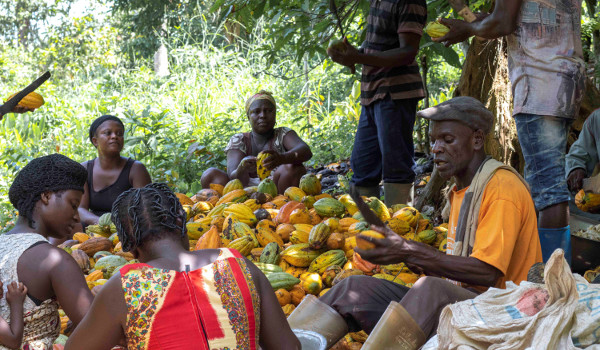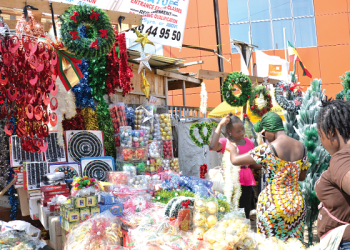Ghana’s cocoa marketing board, Cocobod, is fine-tuning a new funding model for bean purchases that will require global traders to deposit at least 60% of the value of their forward contracts at the start of the season, two sources say.
The new system will replace a three-decade old pre-export syndicated loan from international banks, which Cocobod said it would not raise for its 2024/25 cocoa season for the first time since 1992.
Ghana, the world’s second biggest cocoa producer after Ivory Coast, previously used the loan to finance bean purchases from farmers and shore up its reserves, helping to cool pressures on the cedi currency. But Cocobod paid a record 8% interest on last year’s loan and now expects the new funding model to save it over $150m in interest payments.
Under the new system, part of a trader’s deposit will be used to fund purchases from farmers via an existing partnership with a licensed cocoa buying company. In this way, traders would work with licensed cocoa buying companies by funding them to buy the cocoa, while Cocobod would act as an intermediary, said the sources, requesting anonymity as they were not authorised to speak on the issue.
“Basically, we are saying traders work with licensed cocoa buying companies and if so, they must fund them to buy the cocoa, but Cocobod will act as the intermediary,” said the source, requesting anonymity as they were not authorised to speak on the issue.
Much of Ghana’s cocoa is bought by large, diversified trade houses with deep pockets, including Olam, Barry Callebaut, Cargill, Touton and Ecom. Traders typically sign deals to buy beans — like any other commodity — months in advance in the hope of reselling later at a profit.
“With this new model, the trader pays the remaining 40% (of the contract sum) when picking the cocoa,” the Cocobod source said.
Cocobod was yet to decide with traders if the pre-financing should attract interest or discount on beans supplied, it said.
President of LICOBAG, Samuel Adimado said if well-implemented, the model could address perennial delays in payments by Cocobod, raise buyers’ margins and reduce their costs with a potential reduction in bank loans to fund purchases.
“It requires discipline; if there’s no cocoa, licensed cocoa buying companies shouldn’t be given money. If the licensed cocoa buying company receives money but can’t find cocoa, it must return it. If these are properly applied, perfect,” Adimado said.
Unlike multinational licensed cocoa buying companies, local cocoa buyers lack trader partners, putting them at a potential disadvantage. Adimado said the model must recognise this.
“The question is, what will be the arrangement for them? It’s very important to take care of the indigenous licensed cocoa buying companies and strengthen them so that we don’t leave anybody behind.”
Cocobod will launch the 2024/25 season on September 1, earlier than usual, with a reduced production target of 650,000 tonnes.










Discussion about this post